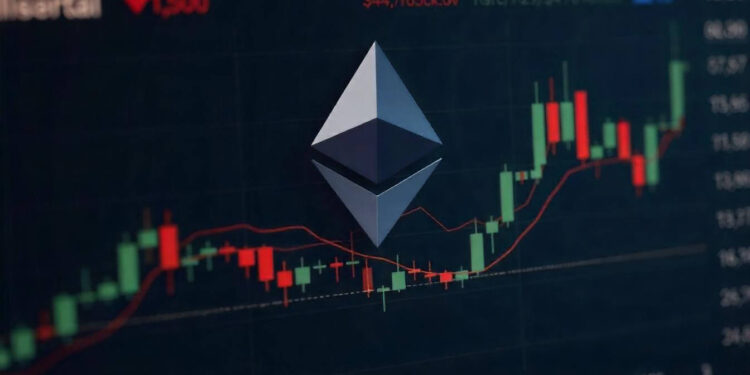- Ethereum Falling Wedge pattern and Hidden Bull Divergence signal a potential bullish breakout with a target of $4,811.71.
- Current RSI and MACD indicators suggest consolidation, but approaching oversold conditions may trigger buying interest soon.
- Bullish momentum could drive Ethereum to $3,350, while a bearish scenario may see a decline to $3,150.
Ethereum’s (ETH) price trends suggest potential bullish activity as technical indicators reveal signs of a possible breakout. Recent analysis indicates that Ethereum is forming a Falling Wedge or Bull Flag-like structure, often associated with bullish reversals. A clear chart trend and perfect Hidden Bull Divergence show strong signs that prices may push towards $4,811.71. The upward push would boost Ethereum prices by 46% from today’s values.
Trends and Indicators Analysis
At the time of writing, Ethereum trades at $3,219.12 and depreciates 2.3% but holds its support level at $3,193.22. If this support is breached bearish traders will dominate the market.
The MACD currently displays a bearish alignment, with the MACD line (-55.98) below the Signal line (-53.36), signaling ongoing consolidation. However, these values remain close enough to suggest a potential crossover if buying momentum increases.
The RSI is at 44.16, below the neutral 50 level, indicating weak momentum. However, it is approaching oversold territory, which could invite buying interest. Historically, such conditions have preceded upward price movements for Ethereum.
The Falling Wedge pattern shows bearish momentum fades while Hidden Bull Divergence shows increasing bullish feelings. The market data suggests that prices may make an unexpected rise shortly.
Market Implications
A strong breakout in bullish momentum pushes Ethereum closer to $4,811.71 while creating substantial investment returns. If Ethereum fails to go past its resistance levels it will move toward the $3000 support level.
The market’s positive response and growing demand for Ethereum can drive the price to $3,350 according to a bullish forecast. Under bearish expectations the price could decline to $3,150 when current market signals no longer hold. Thus, Ethereum’s market dynamics need ongoing observation through key metrics since they shape future price directions.














